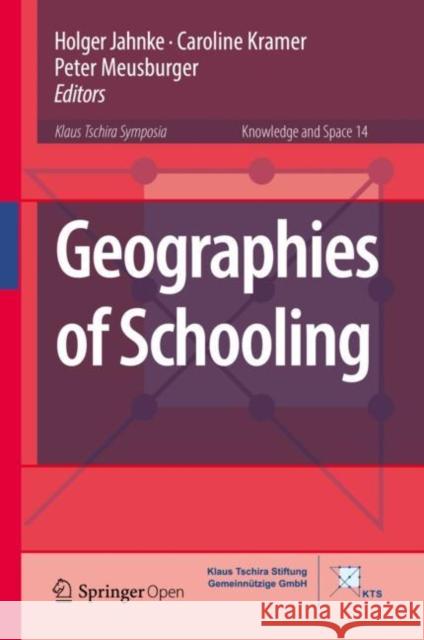Geographies of Schooling » książka



Geographies of Schooling
ISBN-13: 9783030187989 / Angielski / Twarda / 2019 / 359 str.
Geographies of Schooling
ISBN-13: 9783030187989 / Angielski / Twarda / 2019 / 359 str.
(netto: 191,66 VAT: 5%)
Najniższa cena z 30 dni: 192,74
ok. 16-18 dni roboczych.
Darmowa dostawa!
Holger Jahnke is Professor of Geography and Geography Education at Europa-Universität Flensburg and speaker of the Geography of Education working group within the German Geographical Society (DGfG). He works within the field of geography of education, focusing his research and teaching on education and its relationship with spatial development and migration. Most recently, he has researched the role of education in local transformation processes, especially in rural and peripheral areas. Holger Jahnke has used his studies of geography, French, and Italian to teach and carry out research in several European countries as well as in Ghana, Colombia, and Bangladesh.
Caroline Kramer is Professor of Human Geography at Karlsruhe Institute of Technology. Her research interests include the geography of education, population and urban geography, as well as time geography associated with mobility and multi-local living. She is particularly interested in the meaning that small schools have for communities in which they are located. Her most recent work deals with spatial and temporal justice in cities, focusing especially on temporal inhabitants and multi-local living arrangements. She is currently chief editor of the journal Berichte. Geographie und Landeskunde and serves as board member in two German non-university research institutes in regional science.
This open access book explores the complex relationship between schooling as a set of practices embedded in educational institutions and their specific spatial dimensions from different disciplinary perspectives. It presents innovative empirical and conceptual research by international scholars from the fields of social geography, pedagogy, educational and social sciences in Germany, the United Kingdom, France, Czechia, Hungary, Austria, Switzerland, Norway and Canada. The book covers a broad range of topics, all examined from a spatial perspective: the governance of schooling, the transition processes of and within national school systems, the question of small schools in peripheral areas as well as the embeddedness of schooling in broader processes of social change. Transcending disciplinary boundaries, the book offers deep insights into current theoretical debates and empirical case studies within the broad research field encompassing the complex relationship between education and space.
1997-2026 DolnySlask.com Agencja Internetowa
KrainaKsiazek.PL - Księgarnia Internetowa









